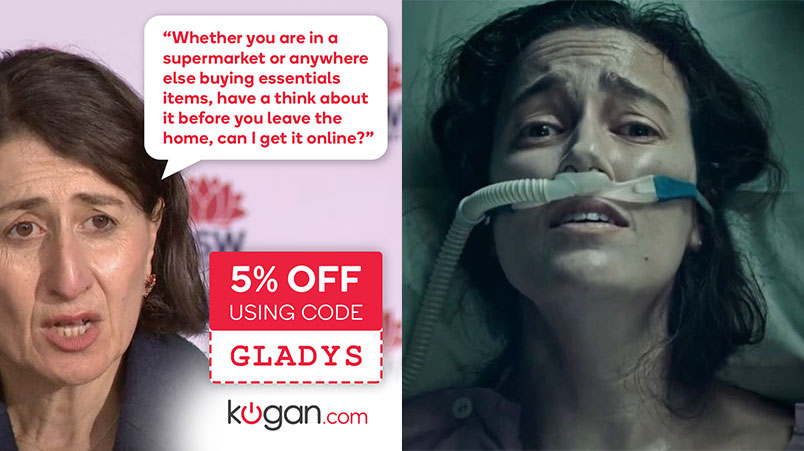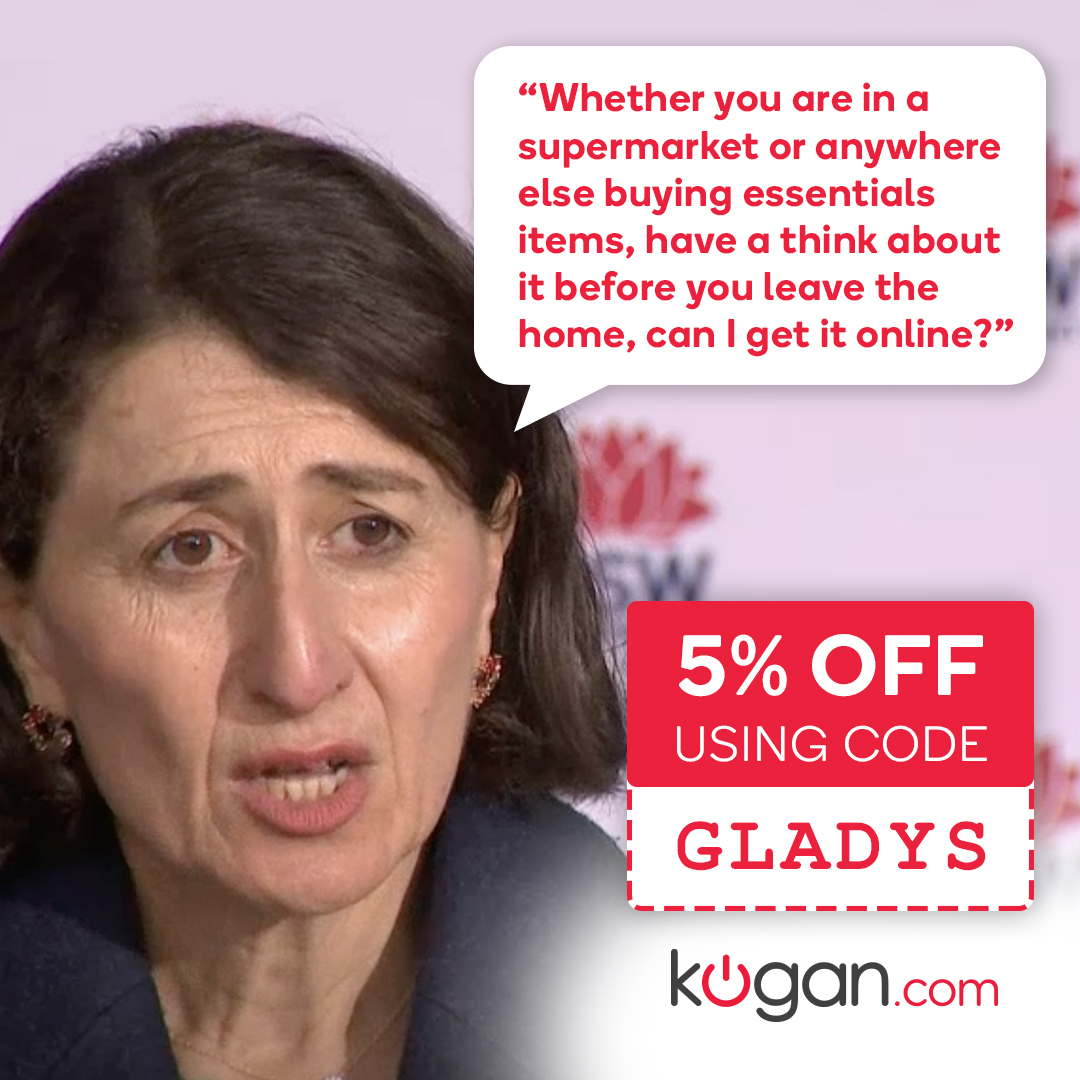Brands step up to drive vaccine uptake as government fails to move the needle

Chinese ridesharing app DiDi is one of the biggest brands pouring resource into driving Australia back from the brink of another extended lockdown. Australian-listed brands such as Qantas and Wesfarmers are also mobilising in a bid to drive up vaccine rates and get people back into stores and onto planes. There's a fine line between opportunism and good faith, but agencies say brands have both permission and a duty to step up. Can they move the needle where government has so far failed?
What you need to know:
- Brands are flexing marketing muscle in a bid to increase vaccine uptake.
- Qantas and ridesharing app DiDi are respectively offering rewards points and $1m worth of travel discounts.
- Wesfarmers MD Rob Scott said the group is already pushing hard – but recognises its brands must do more in a bid to scale vaccination.
- Agencies suggest downside risk is small and upside huge for marketers making genuine attempts to amplify government marketing messages – and say brands are arguably more trusted than federal government.
We certainly encourage businesses that can support the community in this vaccine roll-out, or indeed any other support measures to assist in Australia’s pandemic recovery, to do so.
Moving the needle
The Australian government is under fire for an initially ineffective vaccination campaign – and now a polarising second wave. But it could be that brands could offer a strong alternative to the current strategy in Australia – and some are already piling in.
This week, the Australian Government rolled out two new campaigns as part of its $40m push for further vaccination participation.
The national 'Arm Yourself' campaign, "is an evolution of a range of concepts that have been refined to address recent public sentiment and encourage the continued rollout of the Covid-19 vaccination program", the Department of Health told Mi3, confirming that the effort was produced by BMF.
According to tender documents listed on the Government's website, the budget for the campaign was $1.8m. Media for the campaigns was managed by the Federal Government's media agency UM.
This is the first work under the so-called Government Communications Campaign Panel (GCCP) model as part of the strategy to address long-held frustrations around inefficient procurement.
The government recently completed the biggest shake-up of advertising and communications services in 30 years, adopting an agency ‘village’ model and shifting away from piecemeal pitches in a bid to deliver sharper, more effective campaigns that prioritise the real-world action above high research scores. Under the model, creative, strategic comms and PR and research agencies are assigned to individual departments on initial three-year retainers.
The second campaign, the graphic 'Breathe' TVC running in the Greater Sydney area, was produced by Carbon Media. The Health Department told Mi3 the work was created in 2020 "as part of a wide range of material they produced for Covid-19 late last year to be used if there was a further major outbreak requiring a significant communications response. The advertisement was updated slightly and activated based on the advice of the Chief Medical Officer in response to the current outbreak of the more infectious Delta strain in Sydney."
While the jury remains out on the early impact of current campaigns, they at least have people talking about the strategic approach, and international news coverage.
But brands are now getting on board the vaccination push in a bid to amplify its message and help push Australia back from the brink.
The question is whether they can move the needle where government has so far struggled.
People are starting to trust brands more than government for health and safety advice ... There are massive upsides for brands ... They can and should play their part.
Driving message home
With a market cap of US$54bn, Chinese rideshare company DiDi is the biggest brand on board. It has thrown $1m of incentives to encourage Australians to get the jab via a $10 discount on trips to vaccination hubs, GPs and clinics across Australia.
The campaign is being rolled out through both external media and via its own communication channels.
"We are in a fortunate position where we can genuinely offer a service that will benefit the community in helping Australians gain access to vaccine hubs," DiDi spokesperson, Dan Jordan told Mi3.
"We certainly encourage businesses that can support the community in this vaccine roll-out, or indeed any other support measures to assist in Australia’s pandemic recovery, to do so."
Qantas has also launched several initiatives to encourage vaccination, including Qantas Points or a flight voucher that customers can put towards their next Qantas or Jetstar flight, either domestically or overseas.
Another option is offering status credits to Frequent Flyers, which is the key to moving to higher tiers (Silver, Gold, Platinum) of the airline’s loyalty program.
The move is retrospective, with anyone who already has their vaccine able to claim the incentive until the end of 2021, when the federal government hopes the vaccine rollout will be largely complete.
A spokesperson for Qantas told Mi3 the airline was: "currently working on the back-end and will have more details in the coming weeks."
Wesfarmers has also thrown its support behind the rollout, previously volunteering Bunnings and Officeworks locations as sites for potential vaccination hubs.
“One of the most important things we can do is to encourage and motivate people – our teams, their families, and the wider community – to get vaccinated,” said Wesfarmers MD Rob Scott. “Some companies will offer particular incentives that are relevant to them… However, the biggest incentive is likely to be the broader benefits and freedoms that eventually will come to those who are vaccinated.
“We have done a lot of collective work and collaboration over the last year, and we recognise more will required over coming months if we are to mobilise and scale vaccination.”
Agencies: Brands should step up
Both campaigns have attracted criticism from the industry, health experts and the public for missing the mark in motivating people to get vaccinated. The criticism of the 'Arm Yourself' campaign argues it doesn't say enough, while the 'Breathe' TVC is too graphic and shocking to be effective.
However, when it comes to brands wading in and lending their influence to help drive vaccination campaigns, agencies are very supportive - as is the public.
“Brands can and should play their part,” said Ali Tilling, Chief Strategy Officer, VMLY&R. Tilling touts her agencies' Brand Asset Valuator (BAV) research which suggests that “people are starting to trust brands more than government for health and safety advice.”
Given the “trust gap”, she said brands therefore have a pivotal role to play in harnessing “mass influence” to drive vaccination rates.
“There is a massive upside for brands in being seen to be part of what we call ‘SX’, or offering a safe experience, in the physical as well as the digital sense. Vaccines are a key part of that,” said Tilling.
“As an industry, we talk a lot about brand purpose, and incentivising people is a great opportunity to walk that talk. [Incentive campaigns] are really strong and, for the right brand, exactly the right response to the current situation.”
Genuine efforts, minimal risk
Tilling said advertising campaigns, like Heineken’s “the night belongs to the vaccinated” as well as the Bunnings and Westfield examples demonstrate the many ways that brands can get involved.
“We are seeing different brands responding in ways that build for them while also helping the vaccination effort. Additionally, it’s important to say that it’s not just big brands that can get involved, community-level incentives are powerful too.”
John Ford, CEO of The One Centre, agreed. “Brands play a role in helping popularise and normalise the call,” said Ford. “Next to climate change, Covid is the biggest, most immediate existential threat to our community and way of life. Brands should take leadership on big issues and profit with purpose. A vaccinated community clearly is a positive impact.”
While brands could be accused of vested interest and opportunism, he believes the positives outweigh any potential negatives.
“I think everyone recognises the vested interest, and some will criticise brands like Qantas or Accor or others who stand to gain most from a freely moving society. Some may point out the vaccine risks, the lack of testing time and the risk of long-term side effects – and possibly point the finger at these brands if there are issues.
All that said, Ford thinks “brands that stand up for the vaccination effort are going to reap the benefits as well as the risk – and that risk is small. This whole issue rides above self-interest, and I think as long as that is the case, brands stand to both do their bit and accelerate their recovery.”

Other brands, such as e-commerce platform Kogan, have taken a more tactical approach, using a ‘Gladys’ promotional code and harnessing the NSW Premier’s advice to shop online to a time-limited 5 per cent discount.
Sebastian Vizor, ECD at The Royals, said there is a risk of being accused of tactical opportunism, but thinks permission for genuine efforts is implicit.
“Qantas, for example, is the Spirit of Australia,” said Vizor. “Who better to get us to do what we need, than the company that has the biggest carrot to dangle?”
